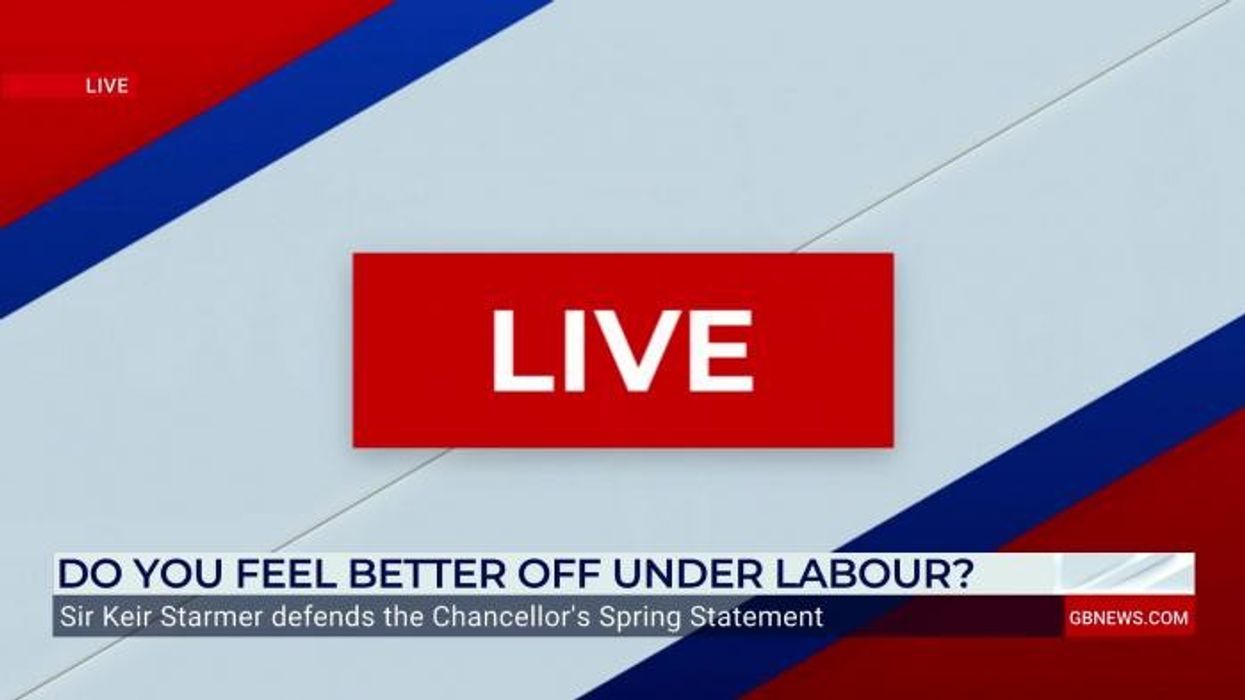State pension warning as Britons may find their National Insurance contributions DO NOT count - costing thousands in retirement

‘Rubbing our noses in it!’ State pension rise will be swallowed up, retiree fears - ‘Doesn’t go anywhere’ |
GBNEWS

Those who have a shortfall on their National Insurance record could find they aren't entitled to the full state pension
Don't Miss
Most Read
Latest
Thousands of Britons approaching retirement are warned they should check their state pension forecasts so they know exactly how much they are getting.
Many may be shocked to find that some of their National Insurance contributions have not counted towards their state pension, leaving them with significantly less income than anticipated.
Helen Morrissey, head of retirement analysis, Hargreaves Lansdown said: "Many of us contribute to our pensions every month, but don’t really think about what we have and what that might give us in retirement.
"It’s led to a crisis of confidence, with only about a third of us sure we can afford to retire and a quarter of us simply don’t know. 37 per cent said they weren’t confident that they had set enough aside.
It’s important to get to grips with your pension situation. Taking a look at what you have can either set your mind at rest or at least let you know what you need to do to make up the shortfall.
"Gaps in your national insurance record could mean you get less state pension than you thought. Take a look at your state pension forecast and if you do have gaps you can put a plan in place to fill them."

Britons may find their National Insurance contributions DO NOT count
| GETTYWhen don't your National Insurance contributions count?
Morrissey said: "People often have gaps for periods of time when they have been out of the workforce or living abroad.
"If you qualified for a benefit during one of these gap periods, then check to see if you are able to backdate a claim. Many benefits – i.e. Child Benefit come with automatic national insurance credits so if you can put in a successful claim, you can plug gaps for free.
"Other options are to pay for voluntary National Insurance contributions. These can be a very cost-effective way of plugging gaps.
"However, before you hand over money double check that you will benefit as there may be some cases where you won’t – for instance if you were contracted out of the state second pension."

To receive the full state pension, individuals need 35 qualifying years of National Insurance contributions
| GETTYTo receive the full state pension, individuals need 35 qualifying years of National Insurance contributions, or a minimum of 10 years for any state pension entitlement.
The forecast is a valuable tool for anyone planning their retirement, helping them identify whether they need to take action, such as making voluntary NI contributions, to boost their entitlement.
If there was a time when someone did not pay enough National Insurance contributions or get enough National Insurance credits to give them a qualifying year, they may find they have a gap on their National Insurance record.
For example, they may have been:
- living abroad
- working but with low earnings (£125 a week for 2025/26)
- not working and not claiming any benefits
- self-employed but not paying National Insurance contributions because of small profits
Achieving 35 years can be challenging for those who have taken time off to care for children or elderly relatives, or who have taken career breaks.
 Britons want more clarity over their state pension future | GETTY
Britons want more clarity over their state pension future | GETTYThe Pension and Lifetime Savings Association recently put the cost of a moderate retirement at £31,700 per year for a single person.
These figures can prove to be a useful guide, but the reality is that retirement is specific to the individual and people may have plans that will cost significantly more or less than this.
More From GB News










